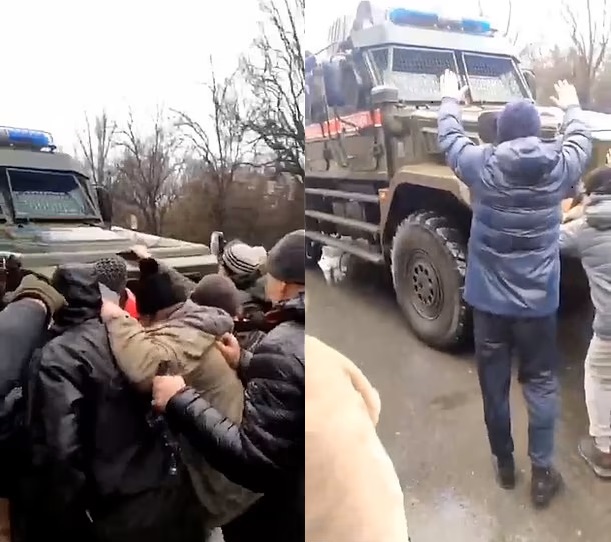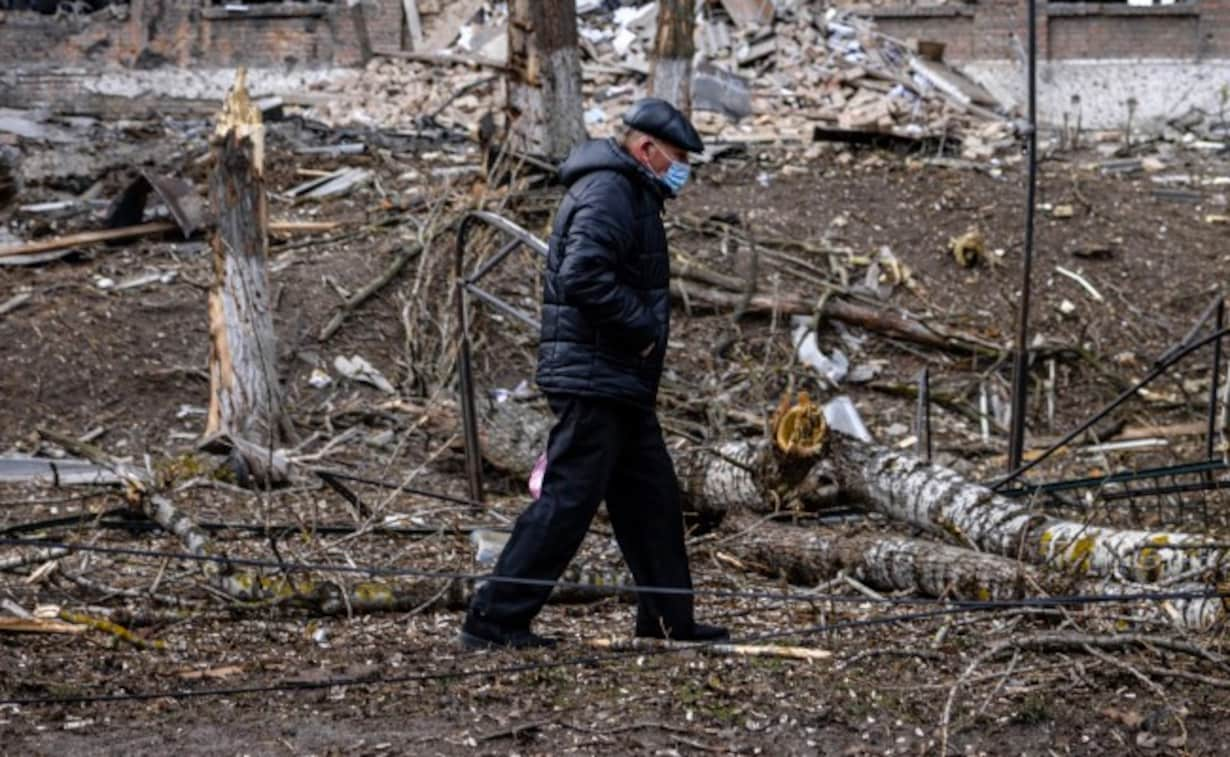
Clandestina, Thessaloniki
“If you cannot have both reason and strength, always choose reason, and leave strength to the enemy (…) we can always draw strength from our reason”
1. There are many ways to speak about capitalist wars: interstate military conflicts, means for capitalist expansion, looting and possession through dispossession, methods for violent destruction of productive forces and devaluation of existing wealth, means to obtain social discipline and conformity, etc. On the other hand, it is counterproductive to speak about the capitalist war machine by using the term “imperialism”.
2. Imperialism cannot explain much. First of all, it is not a precise term, and, more importantly, it can be used to support conflicting and opposite points of view. The “peoples’ struggles against imperialism” quickly get connected to defending certain national interests. In the long run, “anti-imperialism” transforms any fight against power and capital into statist policies and inter- and intra-state interests. During the (first) Cold War, anti-imperialism was used for nation-building and “socialist” primitive accumulation in the areas within the influence zones of the Soviet Union and Maoist China, mainly in Africa. Decolonization (including decolonization from the capitalist mindset) is a whole different story, and it should not be confused with anti-imperialism.
3. Intracapitalist competition that can escalate into war is an obvious reality, more so in a world stuck in a global debt spiral and running out of natural resources. This competition, especially when it is expressed in armed conflict, might destabilize societies and certain sectors of the economy, but it does not destabilize capitalism as a global system. As a matter of fact, this competition re-enforces capitalism, by establishing a new global balance of terror.
4. In a bipolar/multipolar system, stability comes as a result of a distribution of power between two (or more) opponents. The bitter consequences are experienced by the populations within the territories of the opposed interstate coalitions, and more severely by those at the periphery of capitalism. The global capitalist war machine can attack its subordinates only when they believe in -and divide themselves according to- one more false dichotomy, even one that might appear to some as a threat to the stability of capitalism. Only the social movement can damage capitalism, and only a transnational social movement will be able to stop the capitalist war machine and the new balance of terror.
5. The original “Cold War” (that actually reached very high temperatures and has been correctly described as the third world war) was built upon competing ideologies: the so-called “free world” against the so-called “communist” one. A “new Cold War” is already being established, without sufficient time for the ideological investment and rhetorical sugarcoating of its camps. In the past, state communism (both in its Soviet and in its Chinese version) was presented as socialism. Today it is clear to everyone that the confrontation is between “capitalism and capitalism” (authoritarian liberalism vs militarist oligarchy if you prefer). The “new Cold War” needs a certain amount ideological legitimacy (e.g.: “denazification of Ukraine” or “Vladolf Putler” etc.) but the situation is still quite fluid, so we must be extra careful of how we frame our arguments, in order to avoid producing more confusion and stereotypes.
6. Although NATO has been the military wing of western capitalism for decades, and despite the fact that it was (and still is) the deadliest military formation in the world, this time the attacker is someone else (who has ironically used all the old NATO arguments). We must also take into consideration that in the Balkans there is a strong anti-NATO rhetoric and sentiment, both in the far-right and in the patriotic left, especially in Greece and Serbia. Recently, the anti-NATO radical left party in N. Macedonia was transformed into a nationalist party.
We are saying loud and clear: Stop the War. Let us not allow the purest antiwar and antimilitarist sentiments to get buried under geostrategic and historicopolitical analyses. Militarism always brings death. This is an uncontestable truth.
We feel we must realise and support, besides actions of solidarity with those who suffer from the war and those who protest against a war conducted by “their” own state, protests and mobilizations against each nation’s own war machine and against militarism and nationalism.
Also, we cannot speak against the war if we do not act against the war on migrants, waged by many states in the area (the greek state’s leading role in this has to be stressed). The road to war in our area is also paved by antitziganism, machismo, homophobia, patriarchy, religious obscurantism and every dehumanising ideology of aggression and subordination.
7. There has been much discussion in the last days about the war in Ukraine being a Blitzkrieg, it seems though that the war might be prolongued. If the threat of a nuclear war (hopefully) fades away, “Europeans” may start losing interest in people’s deaths in the Ukraine (as long as there isn’t an escalation of violence) and the “real refugees” with blue eyes and blond hair could be used as cheap labor. In any case, Europeans will now have more to unite them and hold them together; that is, more than their hatred towards dark-skinned immigrants and the illusion of high culture and education: the unification of Europe will be realized via a new, militarised society, set out to “defend freedom against the new evil empire”. Cuts on social expenditures and the degradation of living standards will be fully legitimized, and the same goes for brutal exploitation and the intensified looting of natural resources in the capitalist periphery.
8. The pandemic has transformed death into a banality (especially in areas like the Balkans, i.e. without a sufficient public health system) and new ways of social control and repression were tested in the first world (for the rest of the world, it was business as usual). The pandemic was nevertheless a global event, that was followed by another global event: the return of war capitalism in the west. War has never left the rest of the world. But now it has been upgraded to a global event, because it is taking place close to the heart of global capitalism. And there is a reason for this. The United States and Russia are the two biggest oil producers. With the current production levels, oil reserves of Russia will last for 21 years. The USA oil reserves will last for merely another 15.
It is more urgent than ever to create our own global events.

9. With the Yugoslav wars and the long transition from state capitalism to market capitalism, the Balkans experienced one of the first stages of the “fourth world war” on this planet. Nationalism and militarism have torn the Balkans apart many times in the past and it seems that this could happen once again. In 2014, big areas of Bosnia and Herzegovina were shaken by anti-austerity riots against privatisations and unemployment, a wide social unrest that unfolded beyond (and against) national boundaries. Nationalism is returning to Bosnia, as the NATO-Russia confrontation is being build up also there. A couple of years before that, wars had followed the 2011 Arab Spring, and, if we looked further back, two months after the greatest mobilisation of the global movement for social justice (Genoa, 2001), the “War on Terror” was declared. (By the way, the G7 leaders had had no problem welcoming Vladimir Putin in Genoa, who had just “triumphed” in the bloody second Chechen war).
It is more urgent than ever to create our own global events.
We must repeat: The only force to oppose the new bipolar world is the transnational social movement. “It is not much, but it is the only one we’ve got.” We should try to use our gained collective intelligence, avoid polemics and confrontational attitude, strengthen all the networks that we are part of, try to expand and connect them together, and take the initiative to organise common actions, starting from a local and regional context and then move on to global actions, aiming for a social strike to disarm the capitalist war machine. We have to move cautiously but be fast, before all sane people in Western societies* become paralysed as a result of the banality of death.
*In the rest of the world, death is an everyday reality. We stand in awe not only before the brave people who oppose the war in Russia, but also with the social movement in Mexico, that exists and resists, despite the reign of horror of the narcoestado.
